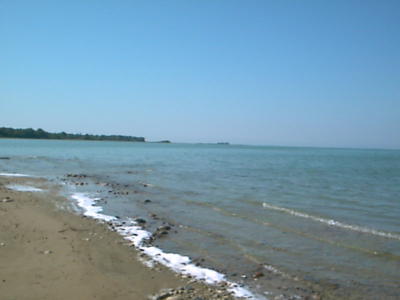Funding Available for Natural Resource Restoration in the Saginaw Bay Watershed

The Tittabawassee River and the Saginaw River and Bay Natural Resource Trustee Councils are jointly announcing the availability of funding for restoration projects to be implemented in the Saginaw Bay watershed, including in and along the Tittabawassee and Saginaw rivers.
This funding is derived from two sources, a 2020 settlement with The Dow Chemical Company and a 1998 settlement with General Motors and others for natural resource damages. The two Trustee Councils will provide approximately $5.7 million to fund restoration projects, in addition to projects already specified in the two settlements.
The Trustees are asking people to submit pre-proposals that the Trustee Councils will then screen and evaluate for their merit relative to restoration project criteria. The criteria that the Trustees will use to evaluate restoration proposals are described within the respective restoration plans for the Tittabawassee River and the Saginaw River and Bay.
A web-based application portal will be used to collect project ideas from the public and other stakeholders as pre-proposals. Access to the application portal, the restoration plans and a summary of the criteria to be used to evaluate pre-proposals may be found at a website for the Tittabawassee River.
Restoration project pre-proposals must be submitted by Dec. 31, 2021. Following evaluation of the pre-proposals submitted, the Trustees will jointly develop a restoration plan that includes proposed restoration projects that rank highly based on the Trustees’ criteria.
The Trustees will then release a draft of this restoration plan, with specific projects proposed for funding, for public review and comment in mid- to late 2022. The Trustees will evaluate public comments and respond to them as they finalize the restoration plan. Funding for projects selected in the final restoration plan will likely be available in 2023 and may require full proposals or scopes of work be submitted to the Trustee agency administering the funding for each project.
Restoration projects must provide some benefit to the natural resources that were injured as a result of the release of contaminants at issue in one of the relevant court settlements. The contaminants at issue in the two settlements are dioxins and furans in the Dow settlement and polychlorinated biphenyls in the General Motors settlement.
Restoration projects may also improve public use or enjoyment of those natural resources, if they meet the requirement that they also benefit the relevant injured natural resources. Projects anywhere in the Saginaw Bay watershed may be eligible for funding, but projects most closely linked to the areas in and around the Tittabawassee River, downstream of Midland, the Saginaw River and Saginaw Bay that were more impacted by contaminants will tend to rank higher.
Examples of appropriate projects that address injuries to natural resources may be found within the respective restoration plans for these two cases: the Tittabawassee River Restoration Plan and the Saginaw River and Bay Restoration Plan.
The Natural Resource Trustees represent the public to accomplish the mission of restoring, rehabilitating, replacing or acquiring the equivalent natural resources, and the services those natural resources provide, that have been injured from the release of hazardous substances.
he Natural Resource Trustees for the Tittabawassee River and the Saginaw River and Bay include the State of Michigan, acting through the Michigan Department of Environment, Great Lakes, and Energy, the Michigan Department of Natural Resources, and Michigan Department of Attorney General; the United States Department of the Interior, acting through U.S. Fish and Wildlife Service and the Bureau of Indian Affairs; and the Saginaw Chippewa Indian Tribe of Michigan.
If you have questions about this opportunity, you may contact Lisa Williams, U.S. Fish and Wildlife Service, at [email protected], using “Tittabawassee – Saginaw RFP” in the subject line of your communication.



